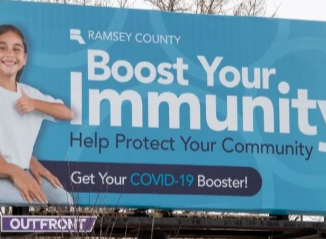
FDA approval of so-called bivalent COVID-19 vaccines seems all but inevitable, worrying some physicians who want to see safety and efficacy data before millions of Americans — particularly those at higher risk of vaccine-related heart inflammation — take mRNA boosters this fall and winter.
The regulator telegraphed its intentions in June by directing vaccine makers to include the ancestral strain and currently dominant Omicron subvariants BA.4 and BA.5 in planned shots. White House COVID Response Coordinator Ashish Jha confirmed the plan at the U.S. Chamber of Commerce last week, giving a target date of mid-September for availability.
Pfizer and BioNTech submitted their bivalent vaccine to the FDA for emergency use authorization (EUA) despite not testing it in humans, according to their joint press release Monday. They are scheduled to start the human trial in ages 12 and up later this month.
“Pre-clinical data showed a booster dose … generated a strong neutralizing antibody response” against the ancestral and Omicron BA.1, BA.2 and BA.4/BA.5, they said. According to The Wall Street Journal, this refers to animal trials. Moderna hasn’t yet sought EUA for its bivalent vaccine.
The rush to approve without human trials is especially alarming in light of the documented superiority of natural immunity against symptomatic Omicron, epidemiologist Allison Krug tweeted. She cited a New England Journal of Medicine study last month that found 91% efficacy from previous infection compared to 66% protection from never-infected two-dose Pfizer recipients.
“[W]e know nothing about” the bivalent vaccines headed for approval, Johns Hopkins medical professor and National Academy of Medicine member Marty Makary wrote in a critical essay Tuesday.
“Urging the American people to blindly obey to take a novel mRNA vaccine is not only bad medicine, it’s bad policy,” he wrote, comparing the process to the “data ambush” the FDA used to approve vaccines for children under 5. “And it’s certainly not following the science.”
The data submitted by Pfizer showed “no statistically significant efficacy” for its vaccine, while Moderna’s was only 4% effective against asymptomatic infection in children 6 months to 2 years, according to Makary.
He contrasted U.S. regulators’ disinterest in vaccine injury and booster side effects with their international counterparts.
A German government study in May found a “serious adverse events” reporting rate of one in every 5,000 vaccine doses. An Imperial College London study, published in Science in June, found “unexpected immune-damping effects” in U.K. healthcare workers with Omicron infections who took three vaccine doses after a previous infection. A previously infected control group that didn’t take multiple shots did not show this “immune imprinting.”
A new study in the American Heart Association journal Circulation adds more evidence to the case for caution when it comes to vaccinating young men against COVID.
University of Oxford and other U.K. researchers looked for myocarditis in a year of vaccinations in ages 13 and up, stratified by age and sex, who took either mRNA or adenovirus-based vaccines.
While myocarditis overall was higher after COVID infection than vaccination up to 28 days later, men under 40 were a big exception. Their rate of “excess myocarditis events per million” after a second Moderna dose was 97, compared to 16 after infection.
Across all ages, Moderna dose 2 had a higher “incidence rate ratio” (11.76) of myocarditis than infection before (11.14) or after (5.97) vaccination. Its booster also had a higher myocarditis IRR (2.64) than Pfizer’s (1.72).
The FDA delayed Moderna’s authorization for adolescents last fall over the same concern. It didn’t respond to requests to answer Makary’s critique and review the Oxford myocarditis study.
Makary and epidemiologist Tracy Beth Hoeg interviewed unnamed CDC, FDA and National Institutes of Health officials who were critical of the rush to approve for an essay last month. Pfizer’s vaccine would have “the same benefit” in young children if you “squirt it in their face,” one said.
“The public has no idea how bad this data really is,” another said. “It would not pass muster for any other authorization.”
University of California San Francisco epidemiologist Vinay Prasad faulted the CDC’s official COVID dashboard Sunday for an apples-to-oranges comparison of COVID-related deaths by booster status.
The agency reviewed COVID-related deaths in people ages 50 and up, reported from 25 jurisdictions. The unvaccinated had a 14 times greater risk of dying from COVID, and the single-boosted a 3 times greater risk, than the double-boosted in June.
“Death rates by booster status does not allow for causal inference about the value of boosting because people who rush to be boosted are different from those who don’t in ways besides boosting,” Prasad wrote, echoing his longstanding criticism that direct comparisons ignore socioeconomic differences in vaccination and boosting.
“This is Epi101, but some still don’t understand it,” he said.
The CDC didn’t respond to an offer to respond to Prasad’s criticism.
* Article from: justthenews.com

